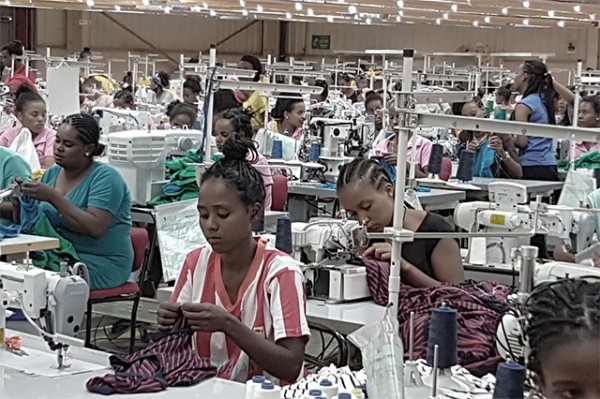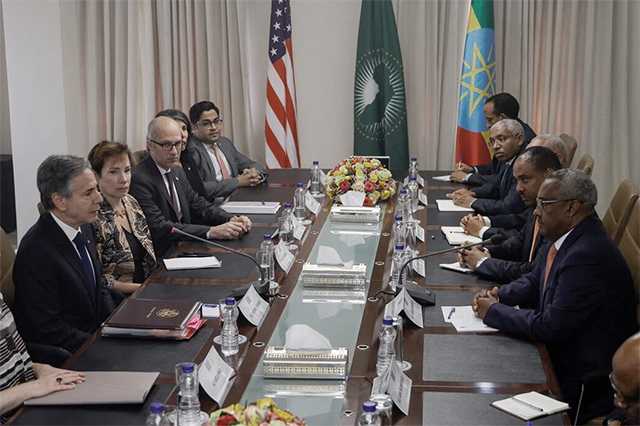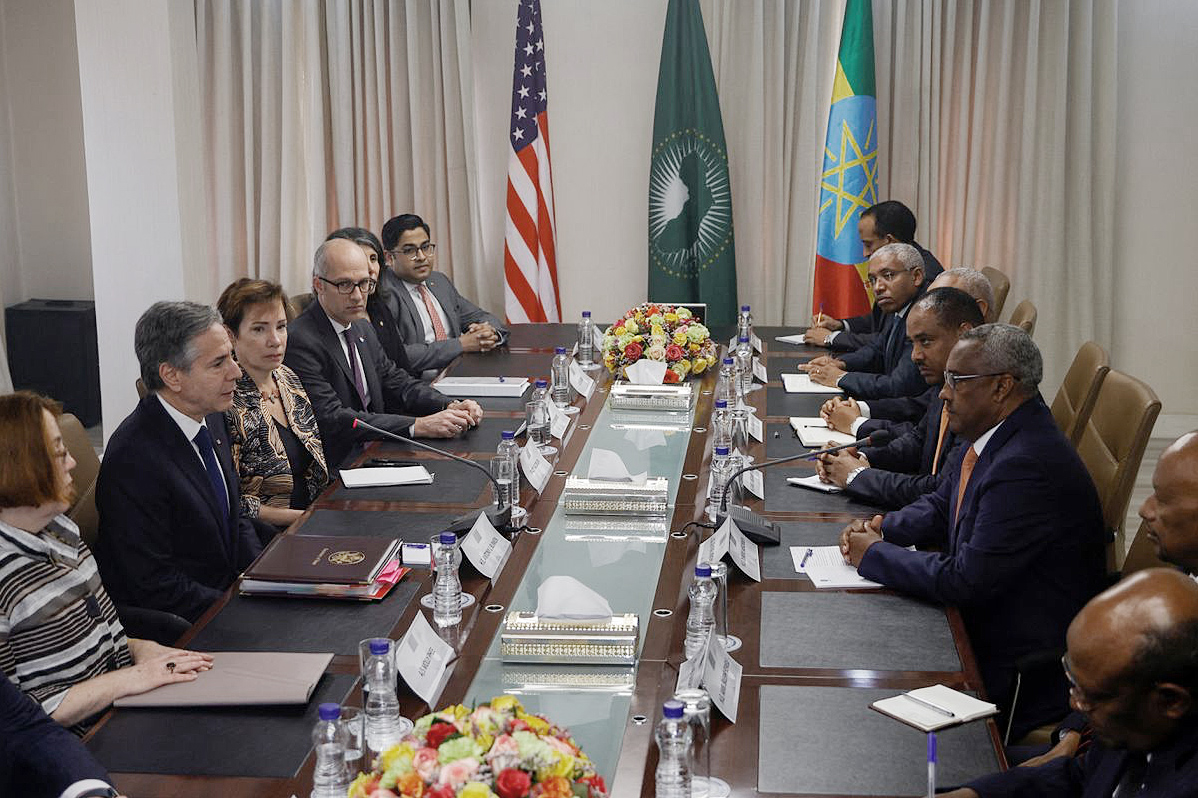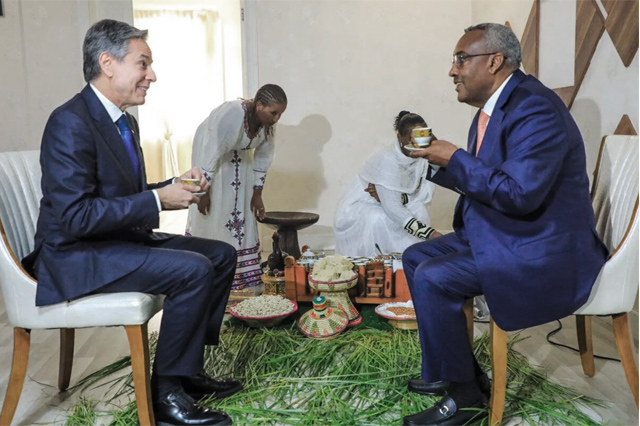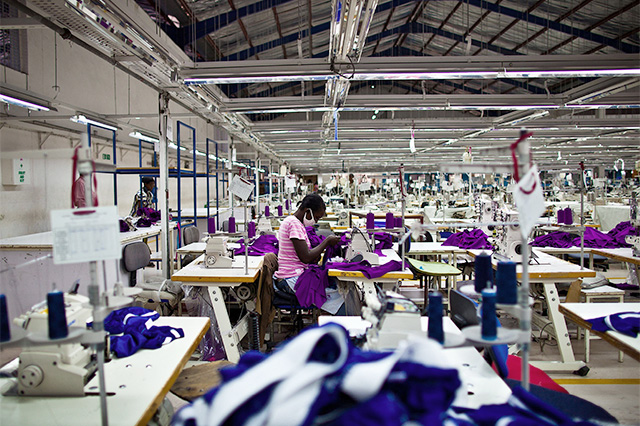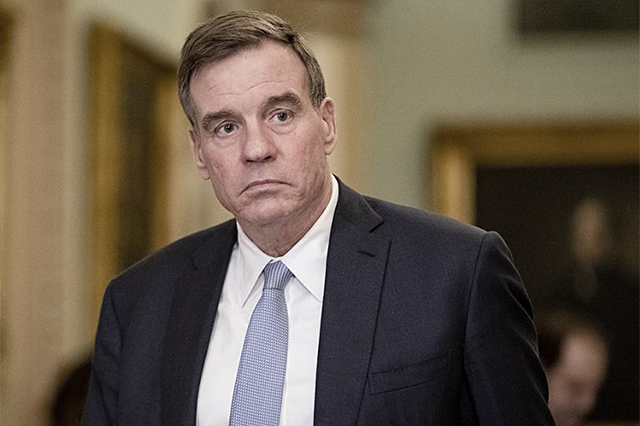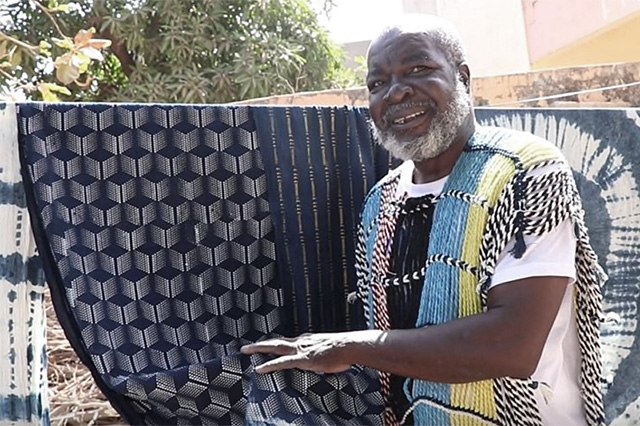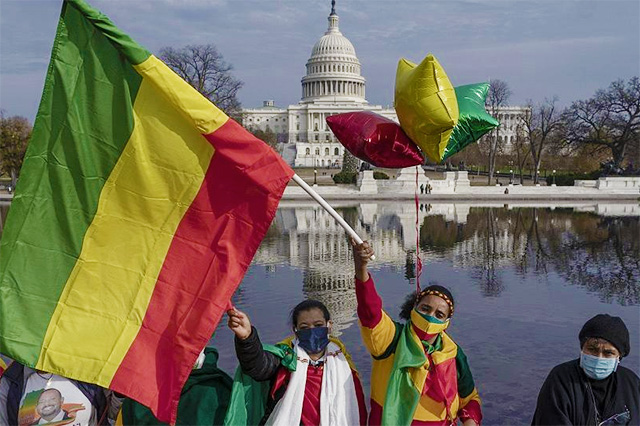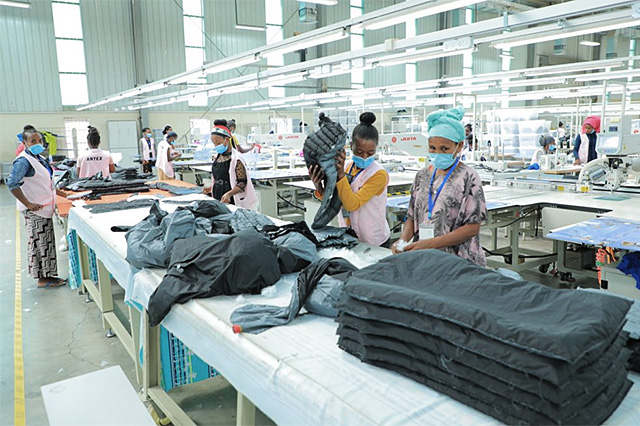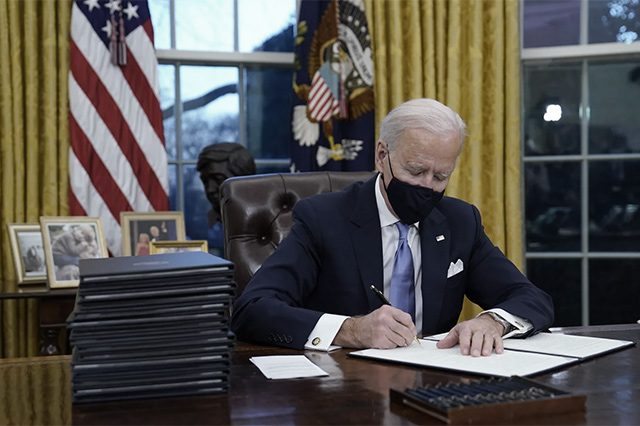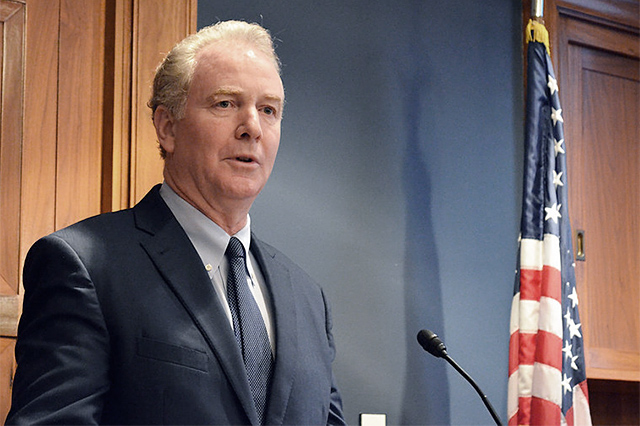Two years on: How Ethiopia's apparel sector is combatting AGOA uncertainty
During an exclusive side chat at Source Fashion in London, the president of Ethiopia's Hawassa Industrial Park Investors Association (HIPIA) Hibret Lemma, confesses Ethiopia is only just at the start of its shift away from relying solely on the US for its garment exports.
He admits losing AGOA was a big hit to the country's garment sector and it slowed down growth considerably. However, Ethiopia's garment suppliers were hopeful that AGOA would be reinstated by the end of 2022 and that hope continued again until the end of 2023.
The nation's apparel sector has now accepted the waiting game is set to continue, with even AGOA's existing members still waiting for the agreement to be extended beyond its 2025 expiry date.
Lemma states: "We're back to reality now so we’ve been looking at the Europe market for about a year but it’s still in the early stages."
In fact, Lemma took part in a panel session at last summer's Source Fashion event where he explained why European fashion sourcing executives should consider tapping into Ethiopia's sourcing potential.
Ethiopia's main challenge since losing AGOA
In his one-on-one chat with Just Style, however, Lemma is much more frank about the challenges since losing AGOA. He notes the main problem for the Hawassa Industrial Park is that it was originally designed with the US fashion industry in mind.
It was built seven years ago with US fashion conglomerate PVH Corp as an anchor investor, so the factory lines were made for repetition and big volume orders.
Ethiopia's manufacturers were not looking at other markets before the loss of AGOA so it meant cutting staff and employees having to go back to their rural homes.
Hawassa, which is still Ethiopia's biggest industrial garment factory park, had 4,500 employees at its peak. Since the end of the country's AGOA membership in 2022 this has dropped down to 3,000.
For Lemma, losing staff due to war and economic issues was a major challenge and on top of that having less help from the government, due to it it having other priorities. He adds access to foreign currency has historically also been a problem, but that is getting better.
The silver lining is that most companies managed to stay at the park, despite some downscaling, but they are now looking for reasons to expand. Indeed, despite the loss of AGOA Lemma retorts proudly that only two companies have closed since 2021.
On the whole, Lemma believes the factories wanted to stay open, which shows the resilience and true long-term potential of Ethiopia's garment sector.
Remarkably, some garment manufacturers are still working with the US market despite the extra costs of not having the AGOA advantage. Lemma suggests these companies have successfully mastered efficiencies such as discounts on transportation to make exporting to the US a profitable endeavour.
Arguably, the big lesson Ethiopia has learned after all this is not to rely on one market and one trade agreement, such as AGOA.
It is the same lesson fashion retailers and brands learned during the Covid-19 pandemic, when supply chain issues were rife. Diversification is key at both ends of the supply chain spectrum.
Pros and cons of exporting to Europe
There are still plenty of opportunities for Ethiopia's garment sector, however Lemma accepts: "Adapting to the European market and fast fashion will require adjusting lines and having more agility, which takes time."
He continues that styles and volume are different for European fashion brands and retailers so this is a challenge for its supply chain.
The French sporting brand Decathlon is namedropped as already sourcing from Ethiopia along with French department store Monoprix, which Lemma says shows the country does have some experience with the European market, but it's still at an infant stage from a scale point of view.
Just Style spoke to a number of Ethiopia garment suppliers while wandering around the responsible global fashion supplier trade show. Many of them were quick to cite Europe as their new target market.
JP Textile Ethiopia's general manager Dick Sun noted that the UK announced duty-free benefits for Ethiopia last year, which is why he was keen to be at the London-based show.
However, Desta Garments PLC's general manager Eyob Bekele points out that Europe and the UK offer Ethiopia the same duty-free benefits as their Asian suppliers, so he views the likes of Bangladesh and Pakistan as real competition.
Bekele acknowledges that Ethiopia doesn’t have as much vertical sourcing, which makes it a challenge as Ethiopia has to buy materials from Asia, while also competing with the sourcing major continent on export price for its ready-made garments.
There is development in Ethiopia's cotton farms and companies are looking into backward integration in terms of developing the fabric, but it has to be sustainable, Bekele adds.
Lemma hopes verticality will be on the horizon for Ethiopia in the not too distant future. He stated: "We would love to see fabric mills and a ginning capacity. We also want our garment hub to be a leader in Africa. I hope in three or four years we will be a leader at least in sub-Saharan Africa".
For Bekele, sustainability is key as he points out that Europe in particular is looking for more sustainable options and higher quality fabrics.
Plus, he agrees with Lemma that the US' consumer power is much bigger than Europe so his factory was not set up for the smaller volumes European brands and retailers are now requesting.
Demka Group's managing director Ayhan Demir explains his Turkish company opened an Ethiopia factory eight years ago. AGOA was a "big disappointment" and is the reason why his company has now "turned its face to Europe and the UK".
Demir shares UK retailers Matalan and Primark currently work with Demka Group's factory in Türkiye, but given the impact of the Red Sea crisis, he is hopeful the Ethiopia factory could become an attractive proposition for them moving forward.
Sumbiri Hela Intimate Apparel's general manager Ravi Jaya Thilaka also points out that Ethiopia is already producing highly technical garment products.
He says his company has the first bra factory in East Africa which involves using high tech machinery. His factory has 3,000 employees and he is proud to say the workforce is trained and has a willingness to learn with potential for them to improve.
Will Africa be Ethiopia's next big opportunity?
Lemma describes Africa's consumer market as a real growth opportunity, but he notes you can't put a timeline on it as the free trade agreement for Ethiopia is not yet in operation.
He is referring to the African Continental Free Trade Area agreement (AfCFTA), which aims to create the largest free trade area in the world measured by the number of countries participating.
Ethiopia is yet to commence its trial but it is said to be making preparations with a view to diversifying its export products.
Bekele believes that once the trade agreement is in operation the duty-free benefits will give Ethiopia a big opportunity. He notes volume is also substantial in Africa but affordability has to be a key part of any African consumer push.
For Bekele, another arguably missed opportunity to date that would prevent both the amount of excess garment waste that enters the region as well as the chance to boosts Ethiopia's sourcing potential locally is for global fashion brands and retailers to open stores in the continent.
Bekele believes there is demand for it as many Africans currently buy branded products when they travel to Europe so he asks: "Why are chains not opening in Africa?"
Hirdaramani Apparel's group marketing consultant Tharumal Wijesinghe agrees that Africa's potential is "huge".
He maintains it is beneficial for his multinational company to stay in Ethiopia as it gives European fashion brands and retailers the chance to expand their sourcing in the region for the time being.
However, like so many of the other Ethiopian garment manufacturers exhibiting at Source Fashion, Wijesinghe has still got his fingers (and toes) crossed for AGOA and its huge US consumer market returning in the near future.


